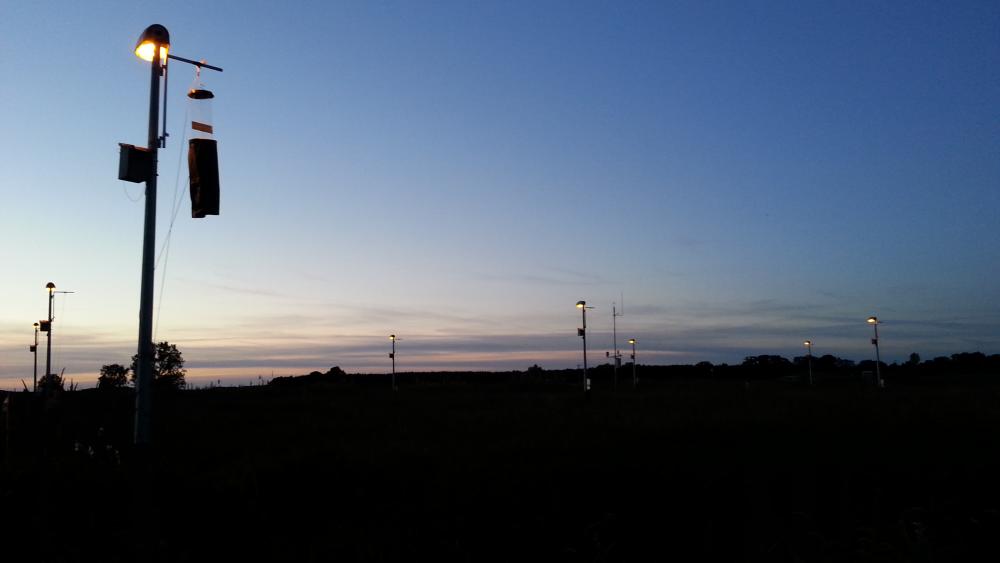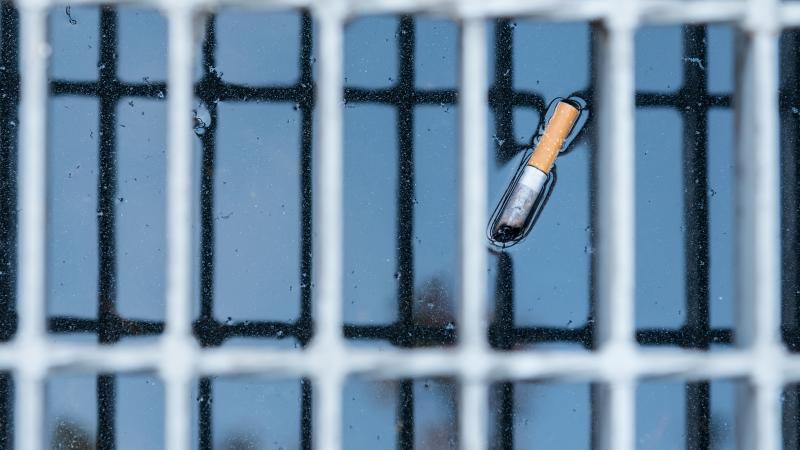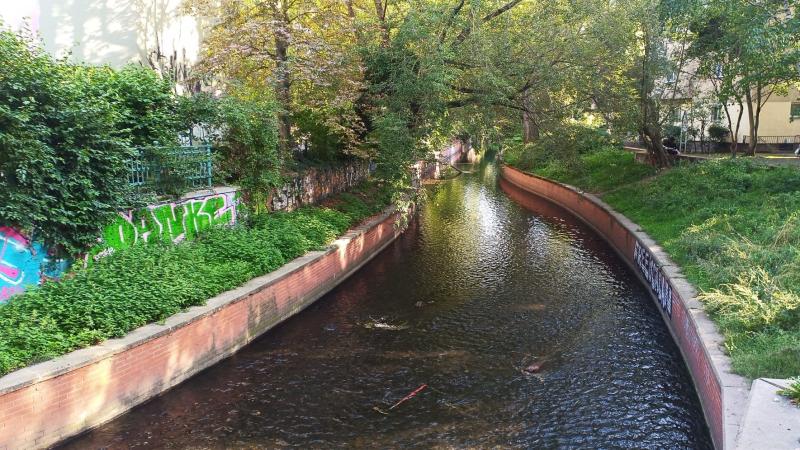
Experimental field in the nature park Westhavelland. | Photo: Maja Grubisic/IGB
Federal Environment Minister Svenja Schulze: "We must bundle competences to protect insects, which is why we have just adopted our Insect Protection Action Programme in the Cabinet. Now we are implementing our goals through different projects. Incorrect street lighting is one of the reasons for the decline of insects. That's why we're encouraging the development of an environmentally friendly street lighting design that will help us better protect nocturnal insects and other animals."
IGB researcher PD Dr. Franz Hölker is the leader of the project: "Countless insects are affected by street lighting, especially near water bodies. With this project we want to contribute to the protection of the aquatic fauna." In cooperation with the Department of Lighting Technology at the Technical University of Berlin, the IGB wants to develop a street lighting design that minimizes the emission of light onto the trajectories of insects. Following a scientific evaluation in an experimental field in Westhavelland, the new street lighting design is expected to be installed and tested in four cities in autumn 2021: the city of Fulda (Hesse), the city of Krakow am See (Mecklenburg-Western Pomerania) and the Brandenburg municipalities of Gülpe (Havellaue district) and Neuglobsow at Lake Stechlin.
Two years before and after the installation of the new street lighting, the behaviour of insects at the street lights will be investigated. The investigations also require the cooperation and expertise of volunteer entomologists, who will be integrated into a Europe-wide network. Furthermore, schools will be involved in the experiments so that pupils can learn the taxonomic classification of insects and their importance for ecosystems. The project also relies on the participation and support of local residents. "The involvement of citizens in the project is particularly important because private lighting in gardens and on house facades is increasing," says IGB researcher Dr. Sibylle Schroer, project coordinator.
In view of the dramatic decline in insect populations, the project will issue recommendations for action to municipalities, authorities and companies in order to counteract the negative effects of lighting in both the private and public sectors. Because through insect-friendly lighting, almost everyone can do something about light pollution.
Take a look at the project's website: www.tatort-strassenbeleuchtung.de!
The text is based on the press release of the BMU and BfN of 5th September 2019: BMU und BfN fördern insektenfreundliche Straßenbeleuchtung





